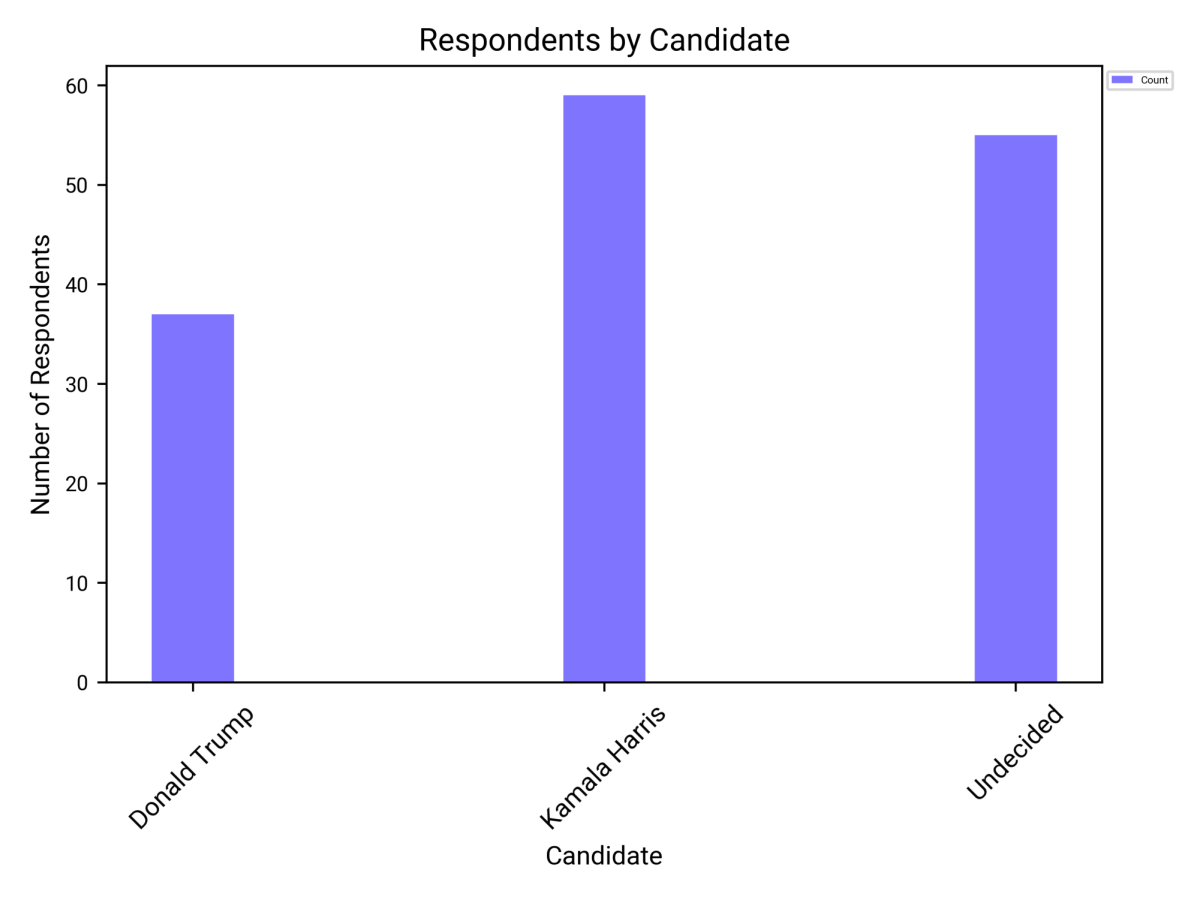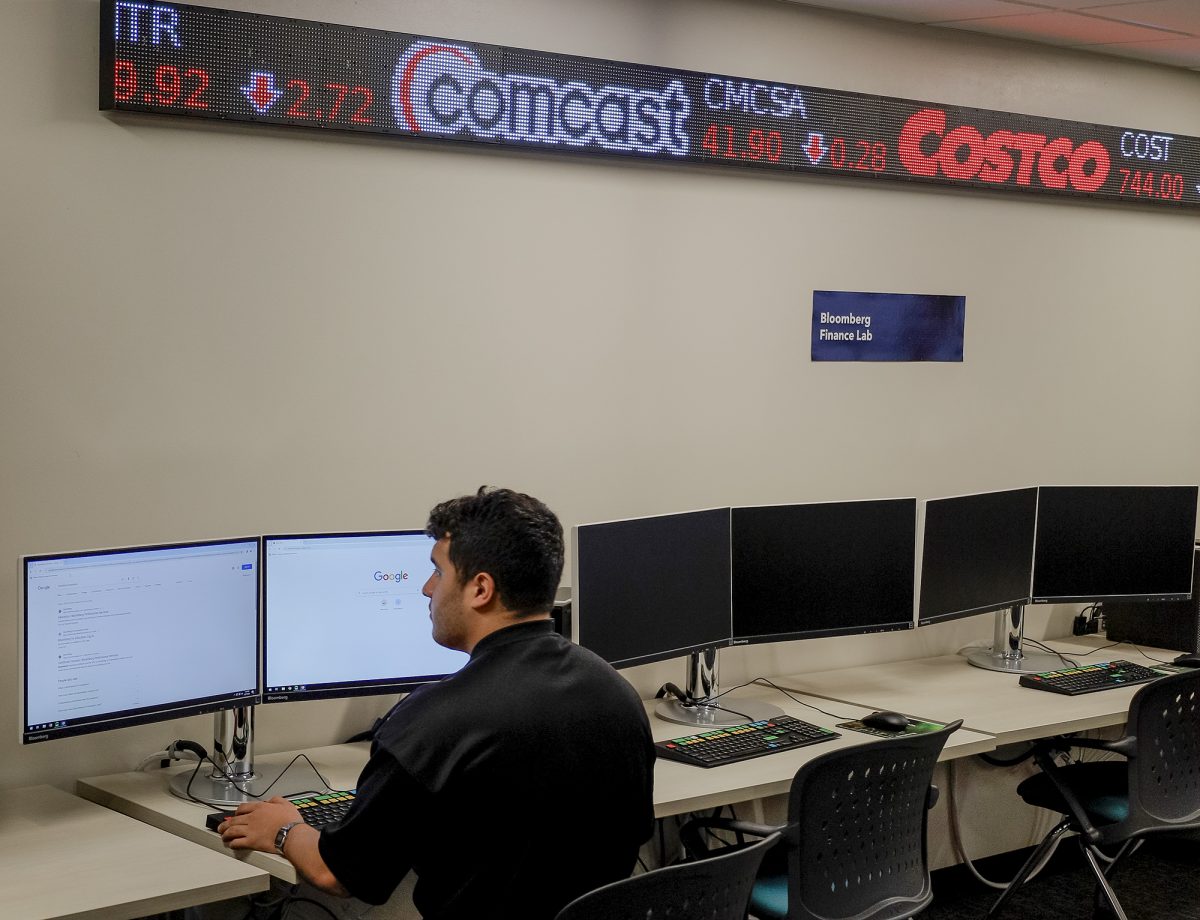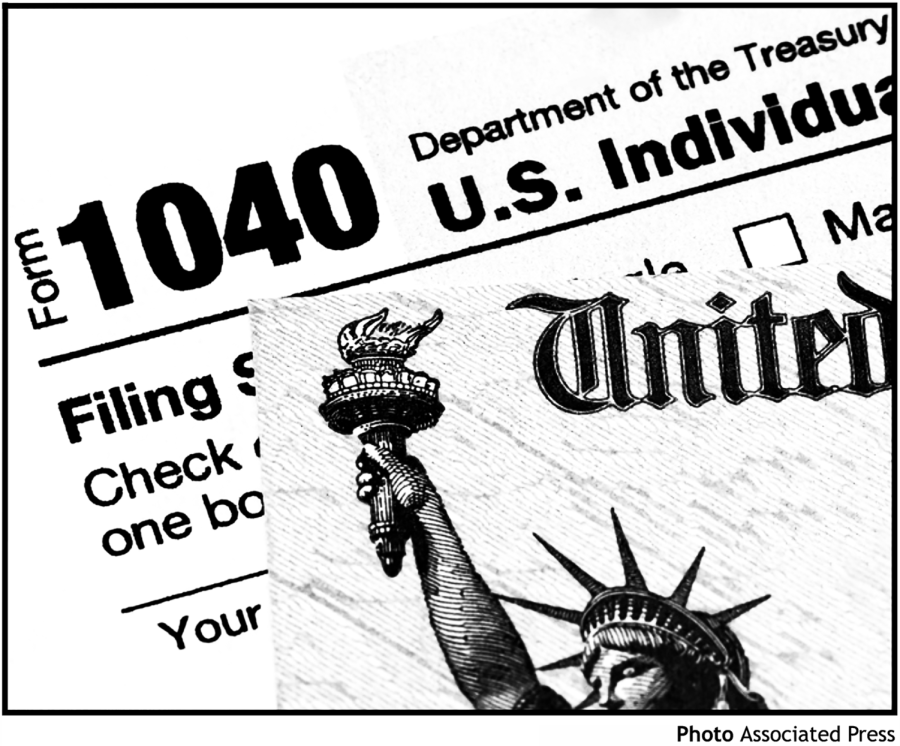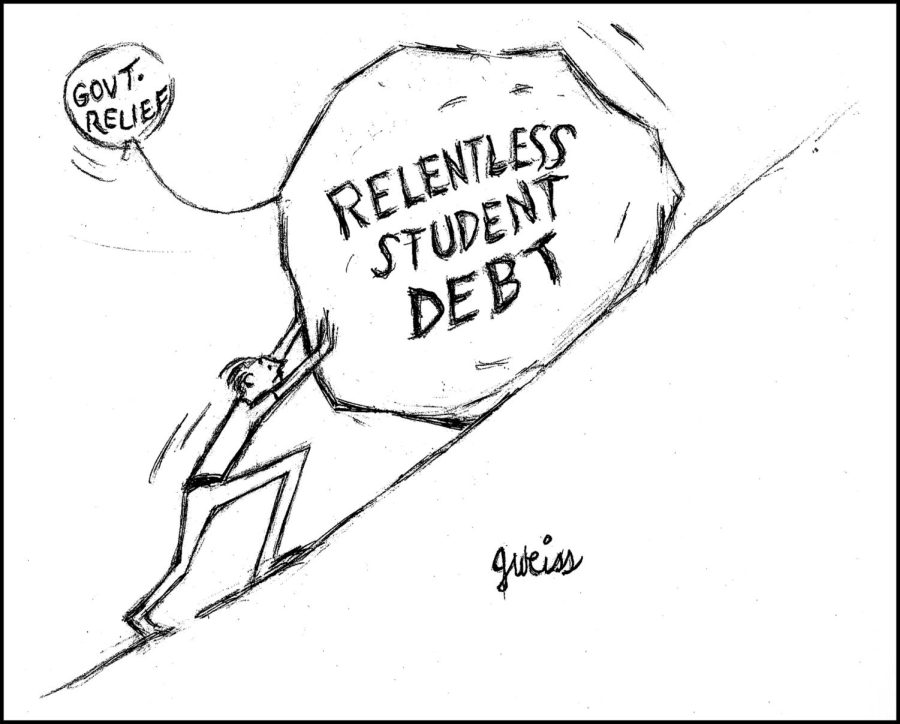Economic frustrations as the Russian-Ukraine war rages
Managing Editor Alex Ortuno
In war, many aspects of life and parts of a nation are impacted. And with the Russian invasion of Ukraine, the global economy reaching from the Americas to Asia is feeling the impact. One of the most highlighted parts in terms of economic factors in the war were the sanctions placed from European Union and the U.S. This included blocking selected Russian banks from SWIFT, the dominant system for global financial transactions, according to the Associated Press.
Todd Senick, lab manager for the Bloom- berg Finance and Investment Lab at Dallas College Richland Campus, said the sanctions are intentionally doing what they are supposed to be doing and have had a large impact on the Russian economy and its currency, the Ruble.
“So far, the sanctions on Russia have been doing what they are supposed to do,” Senick said. “The Ruble has fallen to unprecedented values versus the dollar and other major countries. Since the sanctions have been imposed the economy has been in a free fall and is basically collapsing.”
As for nation states economically impacting Russia, other efforts have been done by organizations and corporations. On Mar. 5, Mastercard and Visa announced they would be suspending operations in Russia, according to the Associated Press. Other companies have joined in, including a multitude of car factories shutting down operations, energy firms diverting their investments from the country and liquor stopping deliveries, according to the Associated Press.
Senick said these moves are rather political but have some consequences for Russia.
“Companies taking action and removing themselves from Russia is more of a political statement and won’t really influence Russia except for people losing jobs,” Senick said. “US companies that do pull out from Russia may have to take charges against their earnings, but it is way too early to know exactly the implications at this time.”
As the war continues, many are concerned if commodities may have their prices inflated due to the impact of the war. Senick said he believes its possible over time.
“I think the choke point on a lot of commodities has been reached and demand destruction will occur gradually over time especially with energy related commodities,” Senick said.
One commodity may be expected to rise in price as the war continues is food. Ukraine and Russia together supply at least a third of the world supply of wheat and barley exports, according to the Associated Press. The war has caused the prices of many wheat and barley based foods to rise. Senick said he believes this is to continue.
“The agricultural commodities such as wheat will have a more lasting impact on prices than other commodities. Food prices will continue to move higher over the next several months,” Senick said.
Many companies face the decision to divert, modify or halt operations in Russia. One concern many had about the economic impact was the price for energy and gas. According to the Associated Press, the average price of gasoline in the nation rose to a record number of $4.17 per gallon on Mar. 8. This price increase comes shortly after the White House announced they would be banning Russian oil imports.
Senick said he believes the impact will be felt as supply has been disrupted but the larger impact will be felt in Europe, rather than the U.S.
While many Western nations look for ways to place further sanctions on Russia, there is a possibility that Russia may place sanctions on Western countries. Senick said any sanctions Russia places on the Western countries would not be very effective.
“I don’t think Russian sanctions on the U.S. will have a material impact,” said Senick. “It may improve some of our energy or agricultural commodities but beyond that there isn’t much they can do to impact the U.S. in my opinion.”




















